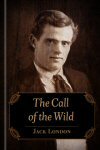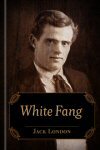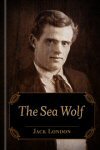Select Works of Jack London (6 vols.)
Digital Logos Edition
Overview
This six-volume collection offers a sampling of some of nineteenth-century American writer Jack London’s finest works. Best known for his rugged, wind-swept adventure stories, such as White Fang and The Call of the Wild, London was also a passionate social advocate, sailor, amateur farmer, and colorful public personality. True to his personal credo: “I would rather be ashes than dust! I would rather that my spark should burn out in a brilliant blaze than it should be stifled by dry-rot. . . . The proper function of a man is to live, not to exist,” London wrote dynamic works in which gritty realism mingles with philosophical questioning. Explore a variety of London’s works from the action-packed thrills of The Sea Wolf to the dystopian musings of The Iron Heel.
In the digital editions, these valuable volumes are enhanced by amazing functionality. Important terms link to dictionaries, encyclopedias, and a wealth of other resources in your digital library. Tablet and mobile apps let you take the discussion with you. With Logos, the most efficient and comprehensive research tools are in one place so you get the most out of your study.
This title is included in the following collections
You can save when you purchase this product as part of a collection.
Reader's Classics Collection (...
$269.99$269.99

- Offers six of Jack London’s best novels
- Includes the best-selling The Call of the Wild and White Fang
- Showcases the range of London’s literary prowess within the novel form
- Title: Select Works of Jack London
- Author: Jack London
- Volumes: 6
- Pages: 1,891

In this classic novel, London’s realist and naturalist inclinations take center stage, shaping this rugged adventure story. Set in the Klondike, the novel’s protagonist is a St. Bernard-Collie mix named Buck. Kidnapped from his California home, Buck is forced to harden into a rough sled dog in order to survive in the brutal realities of the wilderness in which he finds himself. London explores timeless themes such as the relationship between civilization and wilderness, and the struggle to survive.

White Fang first appeared serially in Outing in 1906, achieving instant worldwide success. White Fang serves as a companion to The Call of the Wild. Instead of a domesticated dog returning to the wild, White Fang follows a wild wolfdog’s transition to domesticity during the Kondike Gold Rush in Alaska. London uses his canine protagonist to explore the violence of wildlife and critique the violence of human beings. It is considered to be an allegorical autobiography of London’s transition from trouble teenager to the middle-class.

Jack London’s cerebral novel The Sea-Wolf follows the troubles of a literary critic who survives a shipwreck and is rescued by Wolf Larsen, the highly intelligent, but amoral captain of a seal-hunting vessel. Through his antagonist, London sought to debunk the super-man theory of Nietzche. The Sea-Wolf was released to strong commercial success on the strength of his previous work, The Call of the Wild and was well-received by critics.

In The Iron Heel, Jack London presented the world with what is argued to be the first modern dystopian novel, as well as the novel most clearly demonstrating his socialist views. This novel had a strong influence on future dystopian fiction, especially George Orwell’s Nineteen Eighty-Four. In The Iron Heel, London uses a layered futuristic narrative, where he writes through a female main character, Avis Everhard, who speaks in the first person—a relatively rare narrative strategy at the time. First published in 1908, the novel is made up of Everhard’s journals, which were written a few years in the (then) future, a time in which a tyrannical American oligarchy has taken control. London also utilizes a secondary narrative layered on top, where the so-called “Everhard Manuscripts” are discovered and commented on by a scholar even further in the future, around 2600 AD.

The tragic Martin Eden was first serialized in the Pacific Monthly in 1908/1909. It follows an working class sailor who aspires to be a writer and earn a place in the upper-classes, giving him the right to be with his love, Ruth. In Martin Eden, London provides strong critique of the capitalistic individualism which drives his protagonist to despair in an empty success.
Jack London (1876–1916) was an American writer and social activist. Best-known for novels like The Call of the Wild and White Fang, London was one of the first fiction writers to become widely known and wealthy solely from his work in fiction. Experimenting in numerous written forms, such as poetry, short stories, novels, essays, plays, and memoirs, London developed a wide range of talents. An important figure in realist and naturalist literature, London was also an outspoken social and political activist, advocating for unionization, socialism, and worker’s rights. He explored these issues in many of his works, such as his dystopian novel, The Iron Heel.
Reviews
3 ratings

Denver Race
4/30/2015

Allen Bingham
2/6/2015

Bill Shewmaker
1/27/2015
